
Shirley Weber, then an assemblywoman from San Diego and chair of the California Legislative Black Caucus, was tired of waiting for the federal government to address the issue of reparations for African Americans. Former Michigan Congressman John Conyers had first introduced H.R. 40, a bill that would create a commission to study and develop reparations proposals for Black Americans, in 1989.
Conyers had re-introduced the same bill every year for 30 years, but it had run into a wall of opposition in the Congress from those who insisted that descendants of enslaved Black people should forget the past and move on. H.R. 40 takes its name from the federal government’s broken promise to provide every newly freed enslaved person with 40 acres and a mule during Reconstruction. It has since been revived in the House of Representatives.
Four months after Conyers’ death in 2019, Weber introduced a state reparations bill, AB 3121, modeled after H.R. 40. Gov. Gavin Newsom signed it into law in September 2020. It created a 9-person task force to examine California’s complicity in slavery and come up with proposals for reparations. It created the first such taskforce of its kind in the country. AB 3121 was inspired in part by the Gold Chains: The Hidden History of Slavery in California Project. “We thought if the United States can’t do it, California surely can,” said Weber, who is now secretary of state. “The nation is watching.”
The panel interviewed more than 100 witnesses over a two-year period. On June 29th, the members released their 1100-page report to the California legislature and to the public. It calls for reparations for descendants of Black people as well as an official apology from the state of California for its role in state-sanctioned racist policies.
The extensively researched document outlined in detail the history of slavery in the Golden State, its legacy of anti-Black laws, and their continuing impact today on the economic life of African Americans. The report calls for monetary payments to descendants of enslaved Black people as well as a host of other measures to help repair the harm from nearly 200 years of racist policies that prevented many Black Californians from building wealth.
The report further aims to educate Californians about slavery and its legacy of white supremacy. “So that people understand and don’t become angry that people are getting something quote, for 'free,'” Weber said.
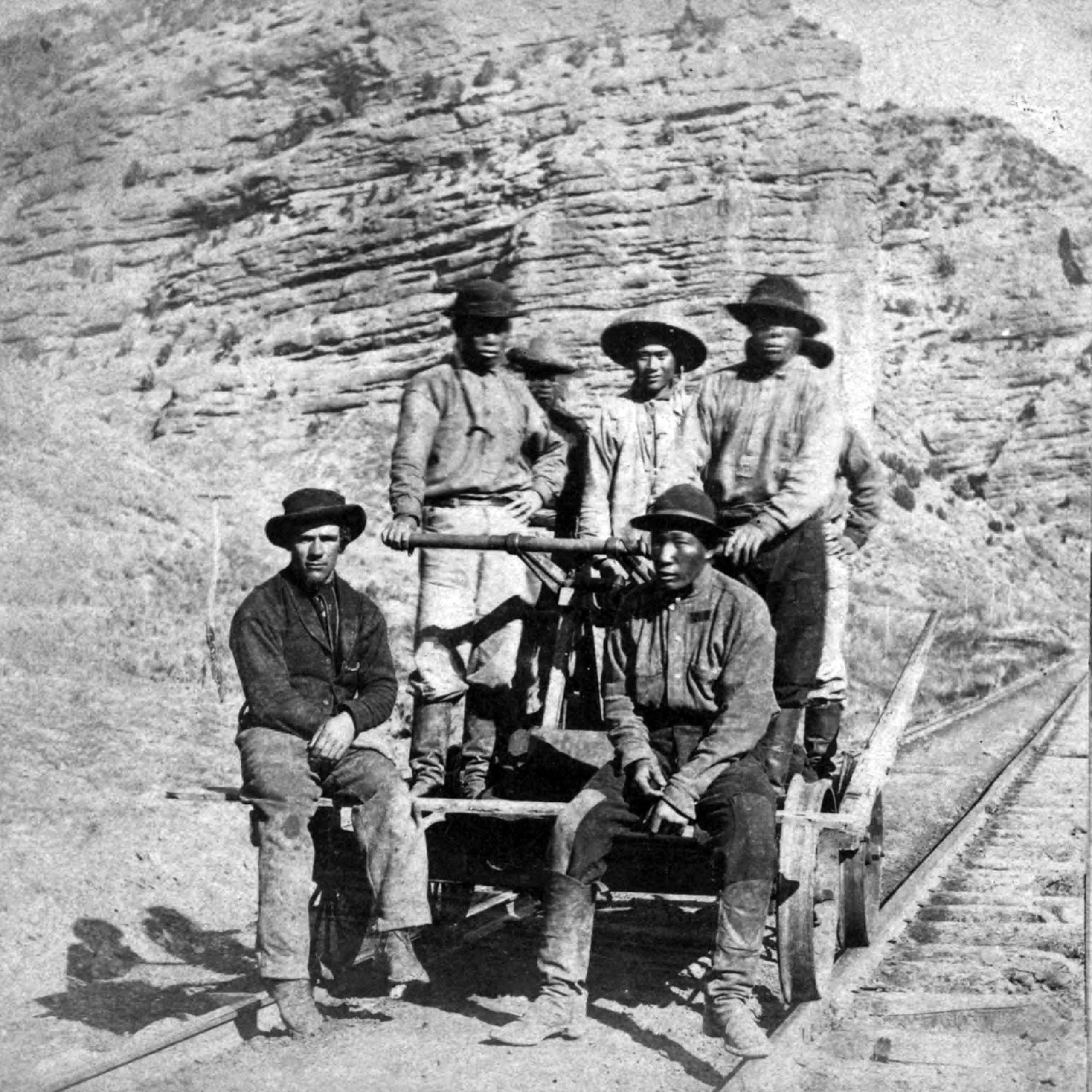
Men on a railroad handcar in California’s Sierra Nevada, circa 1875. // Courtesy of the Seaver Center for Western History Research, Los Angeles County Museum of Natural History.
We thought if the United States can’t do it, California surely can,” said Weber, who is now secretary of state. “The nation is watching.”
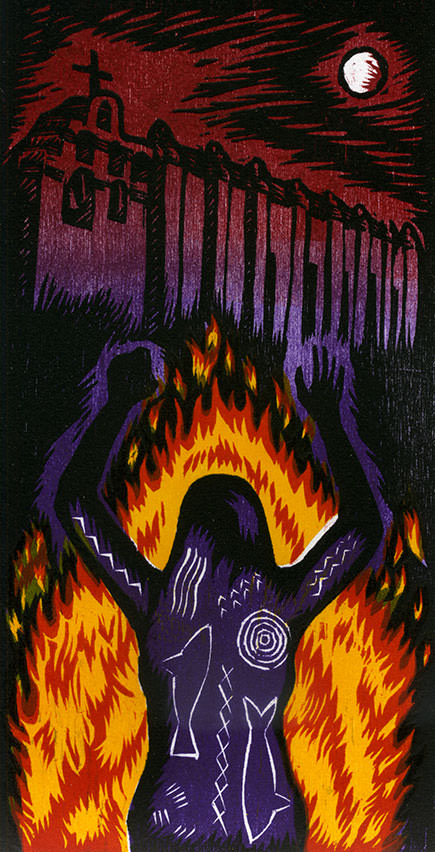
A medicine woman of the Tongva nation, Toypurina helped lead a rebellion against Spanish missionaries who invaded her homeland.
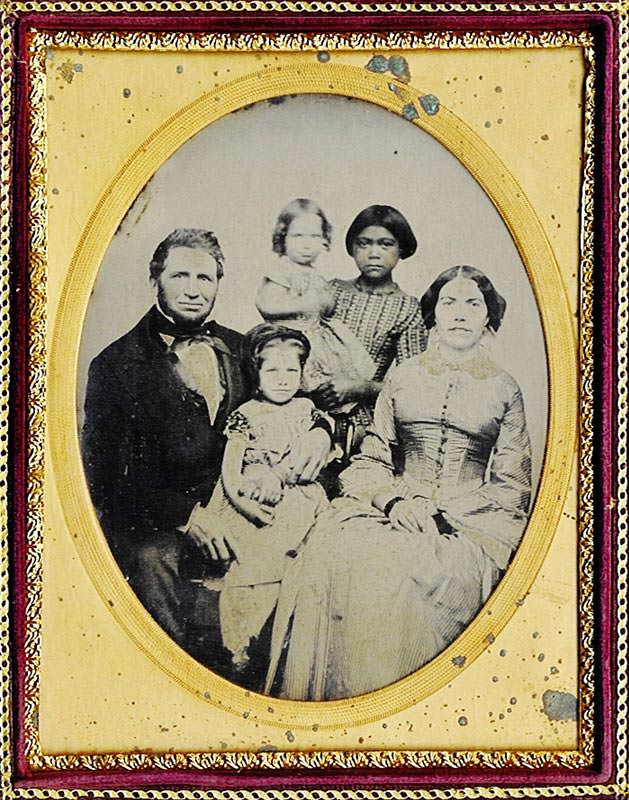
Looking to satisfy demands for cheap household labor, California passed a law that encouraged the kidnapping of Native Children.
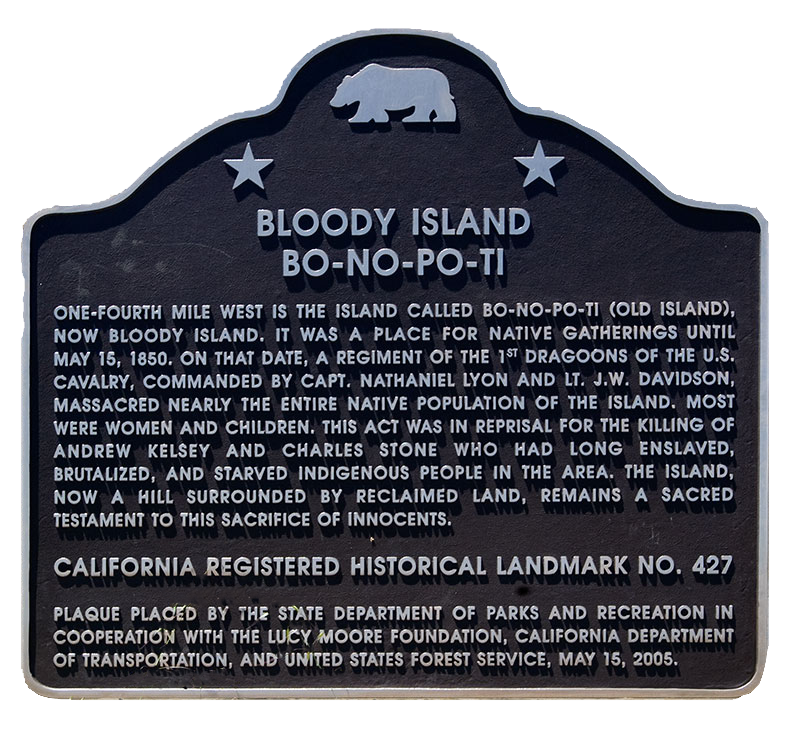
After being enslaved and starved by two white cattle ranchers, Pomo tribe members in Clear Lake rose up and killed their captors. In retaliation, government troops slaughtered as many as 200 Native people.
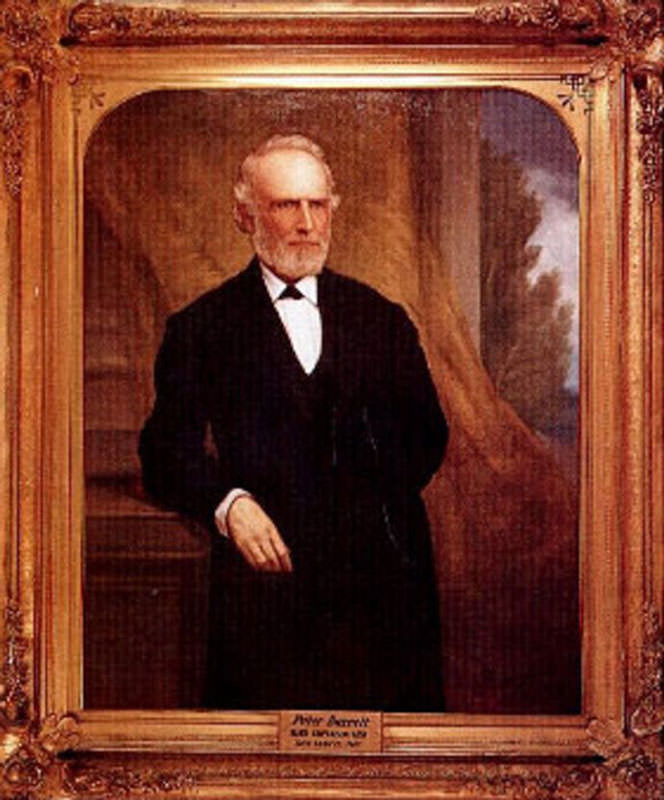
The first elected governor of California, Peter Hardeman Burnett, advocated for the genocide of Native people and tried to ban blacks from the state.
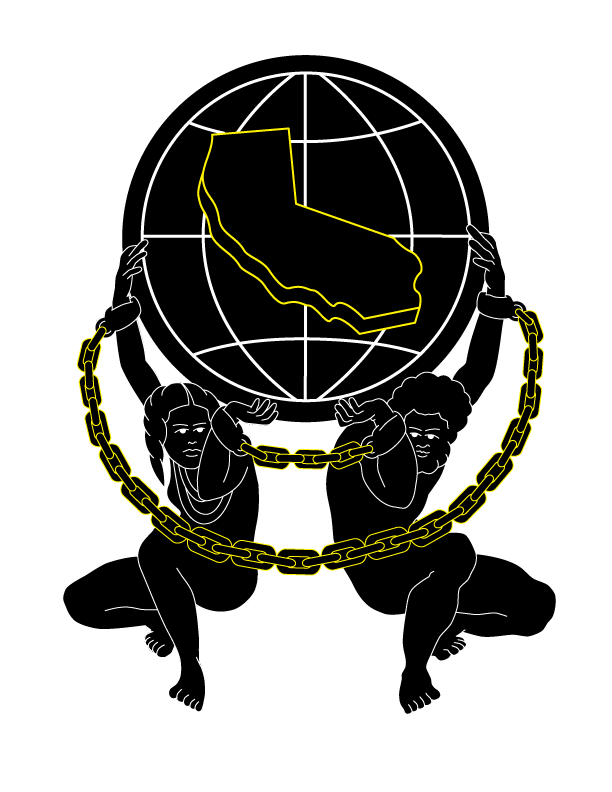
The mission of Gold Chains is to uncover the hidden history of slavery in California by lifting up the voices of courageous African American and Native American individuals who challenged their brutal treatment and demanded their civil rights, inspiring us with their ingenuity, resilience, and tenacity. We aim to expose the role of the courts, laws, and the tacit acceptance of white supremacy in sanctioning race-based violence and discrimination that continues into the present day. Through an unflinching examination of our collective past, we invite California to become truly aware and authentically enlightened.